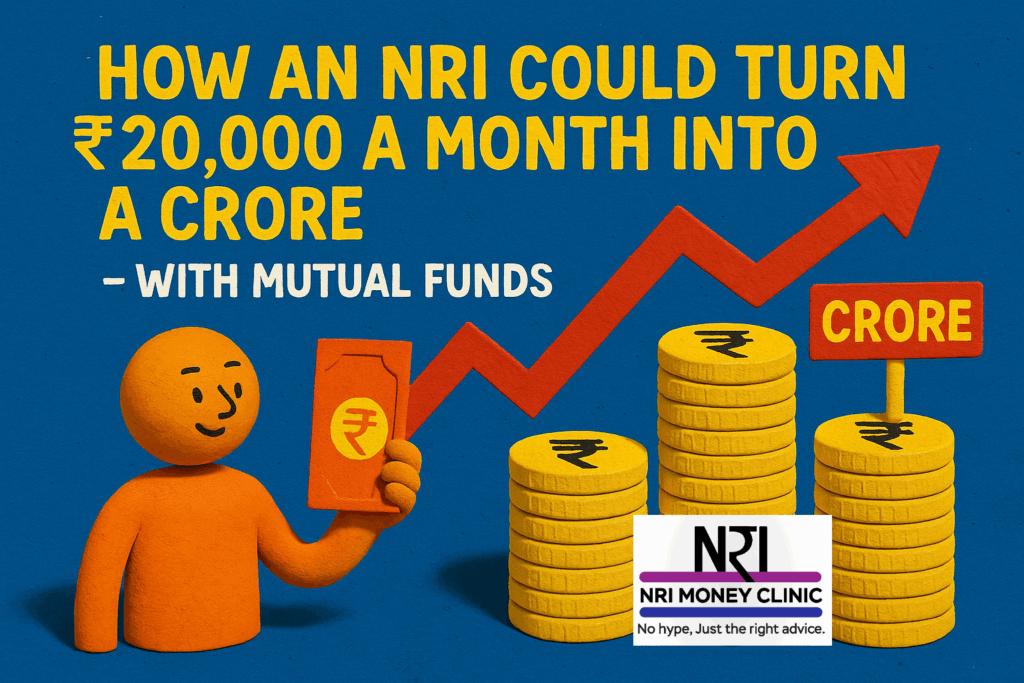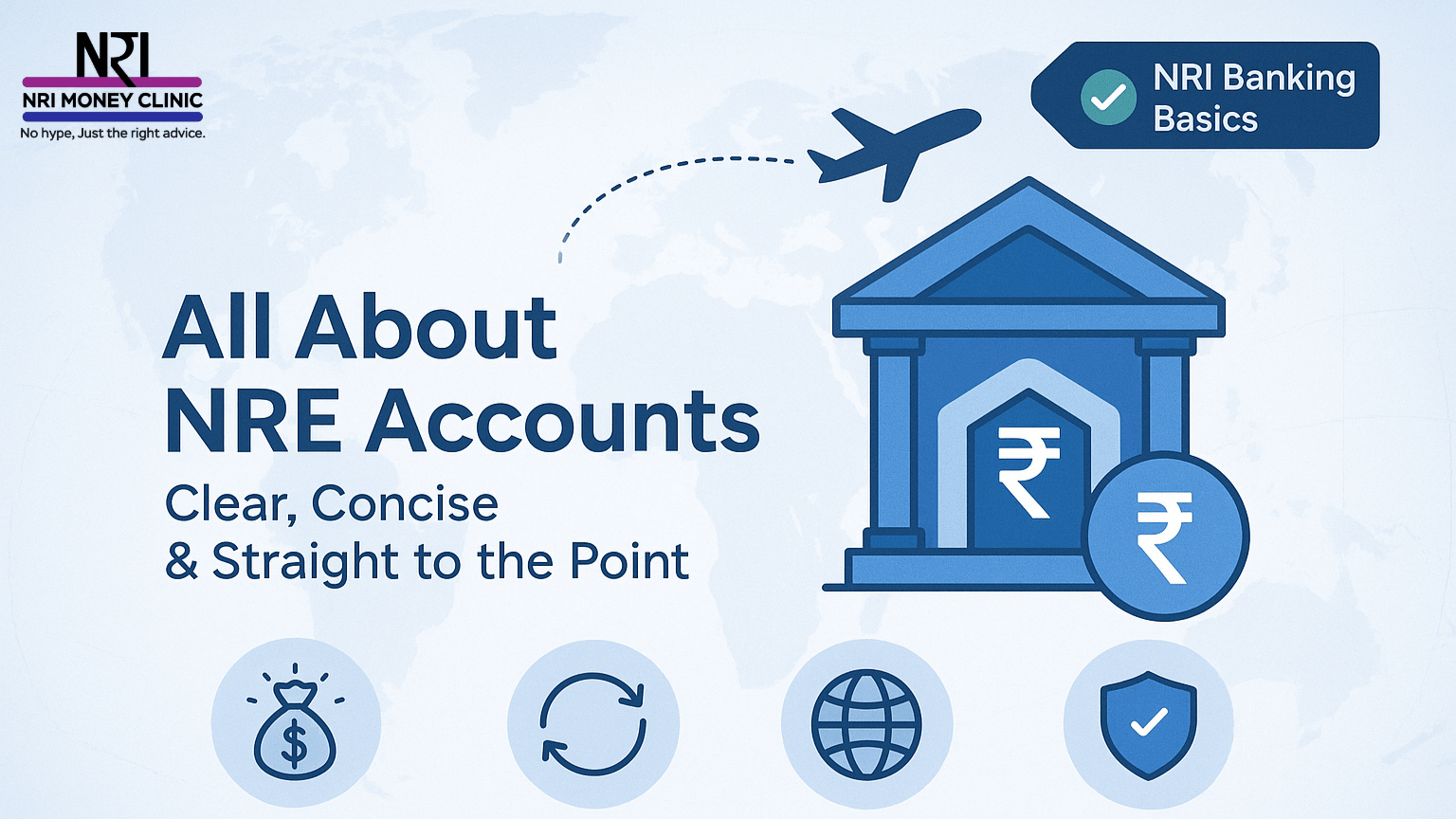(A Hypothetical Yet Powerful Example)
Let’s talk about Ravi.
No, he’s not a real person — but he could be. He represents thousands of NRIs just like you.
A 32-year-old software engineer in Singapore, earning well, saving regularly, and wondering:
“How can I make my money work for me — back home in India?”
His friends recommended real estate. His relatives said gold.
But Ravi chose something simple, flexible, and smart:
Mutual Funds.
Ravi’s Game Plan (Hypothetical, but Realistic)
Ravi started a Systematic Investment Plan (SIP) with ₹20,000 per month in a well-diversified mutual fund portfolio.
He didn’t chase hot stocks.
He didn’t worry about market crashes.
He just stayed invested, consistently.
After 12 years, Ravi’s portfolio could grow to over ₹1 crore — assuming average annual returns of around 12%.*
Sounds like magic? It’s not. It’s compounding — the quiet engine behind long-term wealth.
But Wait — This Isn’t a Get-Rich-Quick Story
This is a story of:
Patience
Planning
Discipline
Ravi didn’t strike gold overnight.
But he did something more powerful — he stuck to a simple plan for years. And that made all the difference.
Why Mutual Funds Work (Especially for NRIs)
Here’s why many NRIs are turning to mutual funds:
✅ Diversification:
You’re not betting on one stock or one sector. Your money is spread across multiple companies, industries, and asset classes.
✅ Professional Management:
You don’t need to watch the stock market 24/7. Expert fund managers handle the strategy.
✅ SIP Discipline:
SIPs create a habit — monthly investing that adjusts with the market and reduces timing risk.
✅ Low Barriers to Entry:
You can start with as little as ₹500 per month. It’s accessible to all, not just the ultra-rich.
✅ Flexibility & Liquidity:
Unlike real estate or fixed deposits, you can withdraw or switch funds based on your needs.
But What About NRIs?
Good news — NRIs are allowed to invest in mutual funds in India.
But there are a few important points:
1. NRE/NRO Account Required:
You must invest through an NRE or NRO bank account. NRE investments are fully repatriable.
2. KYC & FATCA Compliance:
These are mandatory. You’ll need to submit documents proving your identity, overseas address, and FATCA declaration.
3. Some Funds Don’t Accept USA/Canada NRIs:
Due to stricter regulations, many AMCs avoid investors from the US and Canada — but not all. We know which ones work.
4. Taxation:
Equity fund gains over ₹1L are taxed at 12.5% after 1 year.
Debt funds are taxed as per income slab.
India has Double Taxation Avoidance Agreements (DTAA) with many countries — planning matters.
So What’s the Big Lesson?
You don’t need to invest lakhs all at once.
You don’t need a finance degree.
You don’t need to time the market.
All you need is:
A clear goal
A consistent SIP
A trusted guide to help you navigate
And yes, time. Because wealth, like good wine, gets better with age. 🍷
Want to Start Your Journey?
At NRI Money Clinic, we’ve helped hundreds of NRIs start (and stick to) their mutual fund journey — the right way.
✅ Fund selection that suits your goals
✅ Hassle-free documentation and compliance
✅ Full support for USA/Canada NRIs
✅ Tax-smart guidance from Day 1
Click to WhatsApp us now
Let’s turn your vision into a long-term success story — one SIP at a time.
Disclaimer:
This is a hypothetical example for illustrative purposes only. Mutual fund investments are subject to market risks. Past performance is not indicative of future results. Returns are based on long-term historical averages and not guaranteed. Individual results may vary. Please consult a qualified advisor before investing.









No comment yet, add your voice below!